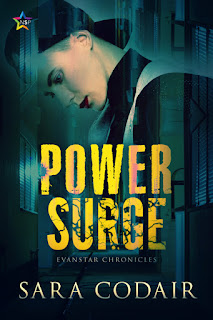 The first Wednesday of every month, the IWSG posts an optional question, encouraging members to read and comment on each other’s blogs.
June's Question is:
June 5 question: Of all the genres you read and write, which is your favorite to write in and why?
The first Wednesday of every month, the IWSG posts an optional question, encouraging members to read and comment on each other’s blogs.
June's Question is:
June 5 question: Of all the genres you read and write, which is your favorite to write in and why?Fantasy is and always has been my favorite genre to write in. I think this is simply because I like making things up and I don't like being bound by rules about what is and isn't possible. Sure, fantasy worlds have their own sets of rules, but as the author, I get to make up what those rules are and how far they can bend before the break.
I grew up playing games with my mom were arm chairs could time travel if they spun fast enough and people could turn into mannequins of they made eye contact with mannequins for too long. Every time I watched TV show that had an ounce of magic in it, I'd make up my own stories about the the characters, continuing their story and adding myself to it. Back then, the word fanfiction wasn't part of my vocabulary, but that is the best word to describe my early stories, even if I never wrote them down.
Fantasy was the genre that made me want to read. For many years, I thought I liked historic fiction, and I also thought I hated reading. However, when I read Harry Potter, Lord of the Rings, the Star Wars Expanded Universe(technically science fantasy), and The Chronicles of the Deryni, and Wicked, that was when I started to love reading. And was before I discovered urban fantasy novels like Tithe and The Dresden Files.
Whether I'm reading or writing, my mind just gravitates towards fantasy. I enjoy the occasional hard science fiction or contemporary novel, but often, a story needs to have some kind of magic to really win me over. The same goes for writing. There is always something magical, something that doesn't quite follow the laws of physics or at least the rules of what is possible. I love infusing the real world with magic, and my best writing has been urban fantasy. Creating new worlds is fun, but it is more time consuming. Patiences hasn't always been my biggest strength. Sometimes I try to write science fiction, but it mostly turns into science fantasy.
I could ramble on and on about why I like fantasy, but what it comes down to is freedom to let my mind run wild, and to just make stuff up.




